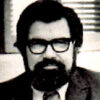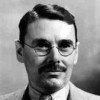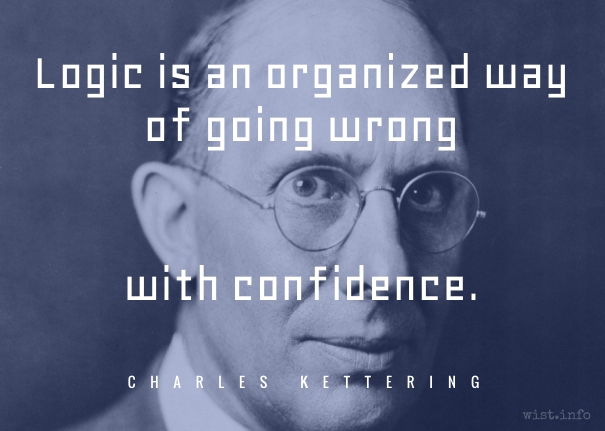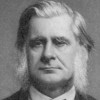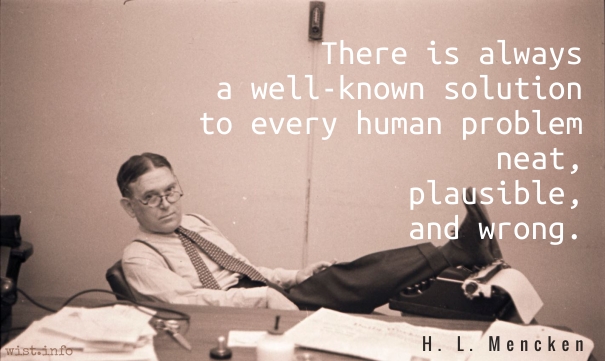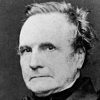Nobody talks much that does n’t say unwise things, — things he did not mean to say; as no person plays much without striking a false note sometimes. Talk, to me, is only spading up the ground for crops of thought. I can’t answer for what will turn up.
Oliver Wendell Holmes, Sr. (1809-1894) American poet, essayist, scholar
The Professor at the Breakfast-Table, ch. 1 (1860)
(Source)
The chapter originally appeared as "The Professor at the Breakfast-Table: What He Said, What He Heard, and What He Saw," Atlantic Monthly, (1859-01).
Quotations about:
error
Note not all quotations have been tagged, so Search may find additional quotes on this topic.
War is mainly a catalogue of blunders.
Winston Churchill (1874-1965) British statesman and author
The Second World War, Vol. 3: The Grand Alliance, ch. 20 “The Soviet Nemesis” (1950)
(Source)
Specifically, on the USSR failing to form an allied front in the Balkans against Hitler prior to his attack on them.
Constant effort and frequent mistakes are the stepping-stones of genius.
Elbert Hubbard (1856-1915) American writer, businessman, philosopher
Little Journeys to the Homes of the Great, Vol. 12: Little Journeys to the Homes of Great Scientists, “William Herschel” (1916)
(Source)
First, if any opinion is compelled to silence, that opinion may, for aught we can certainly know, be true. To deny this is to assume our own infallibility.
Secondly, though the silenced opinion be an error, it may, and very commonly does, contain a portion of truth; and since the general or prevailing opinion on any subject is rarely or never the whole truth, it is only by the collision of adverse opinions that the remainder of the truth has any chance of being supplied.
Thirdly, even if the received opinion be not only true, but the whole truth; unless it is suffered to be, and actually is, vigorously and earnestly contested, it will, by most of those who receive it, be held in the manner of a prejudice, with little comprehension or feeling of its rational grounds.
And not only this, but, fourthly, the meaning of the doctrine itself will be in danger of being lost, or enfeebled, and deprived of its vital effect on the character and conduct: the dogma becoming a mere formal profession, inefficacious for good, but cumbering the ground, and preventing the growth of any real and heartfelt conviction, from reason or personal experience.
John Stuart Mill (1806-1873) English philosopher and economist
On Liberty, ch. 2 “Of the Liberty of Thought and Discussion” (1859)
(Source)
You can fool some of the people all of the time and all of the people some of the time, but you can make a damn fool of yourself any old time.
Lawrence J. Peter (1919-1990) American educator, management theorist
Peter’s Almanac, “3 December” (1982)
See Lincoln.
Thou knowest the errors of unripened age,
Weak are its counsels, headlong is its rage.[οἶσθ᾽ οἷαι νέου ἀνδρὸς ὑπερβασίαι τελέθουσι:
κραιπνότερος μὲν γάρ τε νόος, λεπτὴ δέ τε μῆτις.]Homer (fl. 7th-8th C. BC) Greek author
The Iliad [Ἰλιάς], Book 23, l. 589ff (23.589-590) [Antilochus to Menelaus] (c. 750 BC) [tr. Pope (1715-20)]
(Source (Greek)). Alternate translations:
You, more in age
And more in excellence, know well, the outrays that engage
All young men’s actions; sharper wits, but duller wisdoms, still
From us flow than from you.
[tr. Chapman (1611), l. 505ff]
Thou know’st how rash is youth, and how propense
To pass the bounds by decency prescribed,
Quick, but not wise.
[tr. Cowper (1791), l. 729ff]
Thou knowest of what sort are the errors of a youth; for his mind is indeed more volatile, and his counsel weak.
[tr. Buckley (1860)]
Thou know’st the o’er-eager vehemence of youth,
How quick in temper, and in judgement weak.
[tr. Derby (1864)]
Thou dost know
The faults to which the young are ever prone;
The will is quick to act, the judgment weak.
[tr. Bryant (1870)]
Thou knowest how a young man's transgressions come about, for his mind is hastier and his counsel shallow.
[tr. Leaf/Lang/Myers (1891)]
You know how easily young men are betrayed into indiscretion; their tempers are more hasty and they have less judgement.
[tr. Butler (1898)]
Thou knowest of what sort are the transgressions of a man that he is young, for hasty is he of purpose and but slender is his wit.
[tr. Murray (1924), l. 589-90]
It is easy for a youngster to go wrong from hastiness and lack of thought.
[tr. Graves, The Anger of Achilles (1959)]
You know a young man may go out of bounds:
his wits are nimble, but his judgment slight.
[tr. Fitzgerald (1974)]
Well you know how the whims of youth break all the rules.
Our wits quicker than wind, our judgment just as flighty.
[tr. Fagles (1990)]
Certitude is not the test of certainty. We have been cocksure of many things that were not so.
Oliver Wendell Holmes, Jr. (1841-1935) American jurist, Supreme Court Justice
“Natural Law,” Harvard Law Review (1918-11)
(Source)
Legal citation: 32 Harvard Law Review 40, 41 (1918).
Failure: A man who has blundered but is not able to cash in on the experience.
Elbert Hubbard (1856-1915) American writer, businessman, philosopher
The Roycroft Dictionary (1914)
(Source)
If we say, ‘We have no sin,’ we are deceiving ourselves, and truth has no place in us; if we acknowledge our sins, he is trustworthy and upright, so that he will forgive our sins and will cleanse us from all evil.
The Bible (The New Testament) (AD 1st - 2nd C) Christian sacred scripture
1 John 1:8-9 [NJB (1985)]
(Source)
Alternate translations:
If we say we have no sin, we deceive ourselves, and the truth is not in us.
If we confess our sins, he is faithful and just, and will forgive our sins and cleanse us from all unrighteousness.
[KJV (1611)]
If we say we have no sin in us, we are deceiving ourselves and refusing to admit the truth; but if we acknowledge our sins, then God who is faithful and just will forgive our sins and purify us from everything that is wrong.
[JB (1966)]
If we say that we have no sin, we deceive ourselves, and there is no truth in us. But if we confess our sins to God, he will keep his promise and do what is right: he will forgive us our sins and purify us from all our wrongdoing.
[GNT (1976)]
If we claim, “We don’t have any sin,” we deceive ourselves and the truth is not in us. But if we confess our sins, he is faithful and just to forgive us our sins and cleanse us from everything we’ve done wrong.
[CEB (2011)]
If we say that we have no sin, we deceive ourselves, and the truth is not in us. If we confess our sins, he who is faithful and just will forgive us our sins and cleanse us from all unrighteousness.
[NRSV (2021 ed.)]
And I have again observed, my dear friend, in this trifling affair, that misunderstandings and neglect occasion more mischief in the world than even malice and wickedness. At all events, the two latter are of less frequent occurrence.
[Und ich habe, mein Lieber, wieder bei diesem kleinen Geschäft gefunden, dass Missverständnisse und Trägheit vielleicht mehr Irrungen in der Welt machen als List und Bosheit. Wenigstens sind die beiden letzteren gewiss seltener.]
Johann Wolfgang von Goethe (1749-1832) German poet, statesman, scientist
Die Leiden des jungen Werthers [The Sorrows of Young Werther], “Letter from May 4th” (1774)
Alt. trans.: "Misunderstandings and neglect create more confusion in this world than trickery and malice. At any rate, the last two are certainly much less frequent."
Science is a way of trying not to fool yourself. The first principle is that you must not fool yourself, and you are the easiest person to fool.
We too often forget that not only is there “a soul of goodness in things evil,” but very generally also, a soul of truth in things erroneous.
Herbert Spencer (1820-1903) English philosopher, naturalist
First Principles, Pt. I “The Unknowable,” ch. 1 “Religion and Science”” (1862)
(Source)
Quoting Shakespeare.
I am not one of those who think that the people are never in the wrong. They have been so, frequently and outrageously, both in other countries and in this. But I do say, that in all disputes between them and their rulers, the presumption is at least upon a par in favour of the people.
I have bought this wonderful machine — a computer. Now I am rather an authority on gods, so I identified the machine — it seems to me to be an Old Testament god with a lot of rules and no mercy.
Joseph Campbell (1904-1987) American writer, professor of literature
The Power of Myth, ch. 1 (1988)
(Source)
From interviews between Campbell and Bill Moyers in 1985-86. Broadcast as episode 2 of the PBS television show of the same name. Often truncated: "A computer is like an Old Testament god, with a lot of rules and no mercy."
“I beseech ye in the bowels of Christ, think that ye may be mistaken.” I should like to have that written over the portals of every church, every school, and every court house, and, may I say, of every legislative body in the United States. I should like to have every court begin, “I beseech ye in the bowels of Christ, think that we may be mistaken.”
Learned Hand (1872-1961) American jurist
Testimony, US Senate Committee on Labor and Public Welfare, Special Subcommittee on the Establishment of a Commission on Ethics in Government (1951-06-28)
(Source)
This was a favorite phrase of Hand's regarding his own judicial philosophy. Quoting Oliver Cromwell's letter to the General Assembly of the Church of Scotland (Aug 1650) before the Battle of Dunbar.
Collected as "Morals in Public Life" in Irving Dillard, ed., The Spirit of Liberty (1952).
PEMBROKE: And oftentimes excusing of a fault
Doth make the fault the worse by th’ excuse,
As patches set upon a little breach
Discredit more in hiding of the fault
Than did the fault before it was so patched.William Shakespeare (1564-1616) English dramatist and poet
King John, Act 4, sc. 2, l. 30ff (4.2.30-34) (1596)
(Source)
The least initial deviation from the truth is multiplied later a thousandfold.
The fatal tendency of mankind to leave off thinking about a thing when it is no longer doubtful is the cause of half their errors.
John Stuart Mill (1806-1873) English philosopher and economist
On Liberty, ch. 2 “Of the Liberty of Thought and Discussion” (1859)
(Source)
Never open the door to a lesser evil, for other and greater ones invariably slink in after it.
[Nunca se le ha de abrir la puerta al menor mal, que siempre vendrán tras él otros muchos, y mayores, en celada.]
Baltasar Gracián y Morales (1601-1658) Spanish Jesuit priest, writer, philosopher
The Art of Worldly Wisdom [Oráculo Manual y Arte de Prudencia], § 31 (1647) [tr. Jacobs (1892)]
(Source)
(Source (Spanish)). Alternate translations:
We must not open the door to the least evil, for others, and those greater too, which lie in ambush come always after.
[Flesher ed. (1685)]
Never open the door to a small misfortune, for many more always creep in behind it, and greater ones, under its protection.
[tr. Fischer (1937)]
Never open the door to the least of evils, for many other, greater ones lurk outside.
[tr. Maurer (1992)]
POSITIVE, adj. Mistaken at the top of one’s voice.
Ambrose Bierce (1842-1914?) American writer and journalist
The Devil’s Dictionary, “Positive” (1911)
(Source)
It is error alone which needs the support of government. Truth can stand by itself.
Thomas Jefferson (1743-1826) American political philosopher, polymath, statesman, US President (1801-09)
Notes on the State of Virginia, Query 17 (1782)
(Source)
People everywhere enjoy believing things that they know are not true. It spares them the ordeal of thinking for themselves and taking the responsibility for what they know.
Brooks Atkinson (1894-1984) American drama critic and journalist
Once Around the Sun, “February 2” (1951)
(Source)
Logic is an organized way of going wrong with confidence.
Charles F. Kettering (1876-1958) American inventor, engineer, researcher, businessman
“Kettering’s Law,” from address before American Society of Mechanical Engineers (c. 1944)
Quoted in Heinlein, The Number of the Beast (1980). Alternately quoted:
- "Beware logic. Logic is an organized way to go wrong -- with confidence."
- Logic is an organized way to go wrong with confidence. We should all know by now that a logical course is not always the right one."
Sometimes referred to "Kettering's Observation."
Cited in Food Industries magazine, vol. 16 (1944), referring to the speech being "recent" (the magazine is also referred to as Food Engineering).
This site previously incorrectly attributed the quote to Iris Murdoch. That attribution seems to have been duplicated at some other sites, but was an error. I have also found citations to L. Walter Lundell and Karl Popper.
Another "Kettering's Law" that is referenced is: "Parts left out cost nothing, require no maintenance, and do not fail."
The priceless heritage of our society is the unrestricted constitutional right of each member to think as he will. Thought control is a copyright of totalitarianism, and we have no claim to it. It is not the function of our Government to keep the citizen from falling into error; it is the function of the citizen to keep the Government from falling into error. We could justify any censorship only when the censors are better shielded against error than the censored.
Robert H. Jackson (1892-1954) US Supreme Court Justice (1941-54), lawyer, jurist, politician
American Communications Assn. v. Douds, 339 U.S. 382, 442-443 (1950) [concurrence and dissent]
(Source)
The legitimate powers of government extend to such acts only as are injurious to others. But it does me no injury for my neighbor to say there are twenty Gods, or no God. It neither picks my pocket nor breaks my leg.
Thomas Jefferson (1743-1826) American political philosopher, polymath, statesman, US President (1801-09)
Notes on the State of Virginia, Query 17 (1782)
(Source)
I don’t believe in twisting yourself into knots of excuses and explanations over the food you make. When one’s hostess starts in with self-deprecations such as “Oh, I don’t know how to cook …,” or “Poor little me …,” or “This may taste awful …,” it is so dreadful to have to reassure her that everything is delicious and fine, whether it is or not. Besides, such admissions only draw attention to one’s shortcomings (or self-perceived shortcomings) and make the other person think, “Yes, you’re right, this really is an awful meal!” Maybe the cat has fallen into the stew, or the lettuce has frozen, or the cake has collapsed — eh bien, tant pis!
Julia Child (1912-2004) American chef and writer
My Life In France, “Le Cordon Bleu,” sec. 2 (2006)
(Source)
"Oh well, too bad."
From the same it proceedeth that men give different names to one and the same thing from the difference of their own passions: as they that approve a private opinion call it opinion; but they that mislike it, heresy: and yet heresy signifies no more than private opinion; but has only a greater tincture of choler.
This isn’t right. This isn’t even wrong.
[Das ist nicht nur nicht richtig, es ist nicht einmal falsch!]
Wolfgang Pauli (1900-1958) American physicist
(Attributed)
Quoted by R. Peierls in “Wolfgang Ernst Pauli, 1900-1958,″ Biographical Memoirs of Fellows of the Royal Society (1960): “... a friend showed him the paper of a young physicist which he suspected was not of great value but on which he wanted Pauli’s views. Pauli remarked sadly ‘That’s not right. It’s not even wrong.’” More discussion here.
Error of opinion may be tolerated where reason is left free to combat it.
Thomas Jefferson (1743-1826) American political philosopher, polymath, statesman, US President (1801-09)
Inaugural Address (1801-03-14)
(Source)
Where so many hours have been spent in convincing myself that I am right, is there not some reason to fear I may be wrong?
The greatest follies, like the stoutest ropes, are often composed of a multitude of strands. Take the cable thread by thread, take separately each petty determining motive, and you can snap them one by one and say, “There’s no more to it than that!” Braid them and twist them together, and what you have is momentous.
[Les fortes sottises sont souvent faites, comme les grosses cordes, d’une multitude de brins. Prenez le câble fil à fil, prenez séparément tous les petits motifs déterminants, vous les cassez l’un après l’autre, et vous dites: Ce n’est que cela! Tressez-les et tordez-les ensemble, c’est une énormité.]Victor Hugo (1802-1885) French writer
Les Misérables, Part 2 “Cosette,” Book 5 “Dark Hunt, Mute Mutts,” ch. 10 (2.5.10) (1862) [tr. Donougher (2013)]
(Source)
(Source (French)). Alternate translations:
Great blunders are often made, like large ropes, of a multitude of fibres. Take the cable thread by thread, take separately all the little determining motives, you break them one after another, and you say: that is all. Wind them and twist them together, they become an enormity.
[tr. Wilbour (1862)]
Great follies are often made, like stout ropes, of a multitude of fibers. Take the cable, thread by thread, catch hold of the small determining motives separately, and you break them one after the other, and say to yourself, “It is only that”; but twist them together and you have an enormity.
[tr. Wraxall (1862)]
The greatest follies are often composed, like the largest ropes, of a multitude of strands. Take the cable thread by thread, take all the petty determining motives separately, and you can break them one after the other, and you say, "That is all there is of it!" Braid them, twist them together; the result is enormous.
[tr. Hapgood (1887)]
The greatest blunders, like the thickest ropes, are often compounded of a multitude of strands. Take the rope apart, separate it into the small threads that compose it, and you can break them one by one. You think, 'That is all there was!' But twist them all together, and you have something tremendous.
[tr. Denny (1976)]
Great blunders are often made, like large ropes, of a multitude of fibers. Take the cable thread by thread, take all the little determining motives separately, you break them one after another, and you say: That is all it is. Braid them and twist them together, they become an enormity.
[tr. Wilbour/Fahnestock/MacAfee (1987)]
It is one of the blessings of old friends that you can afford to be stupid with them.
O my son!
These are no trifles! Think: all men make mistakes,
But a good man yields when he knows his course is wrong,
And repairs the evil. The only crime is pride.Sophocles (496-406 BC) Greek tragic playwright
Antigone, l. 1022ff [Tiresias] (441 BC) [tr. Fitts/Fitzgerald (1939), ll. 803ff]
(Source)
Alt. trans.:
Then take these things to heart, my son: for error
Is as the universal lot of man;
But whenso'er he errs, that man no longer
Is witless or unblessed, who, having fallen
Into misfortune, seeks to mend his ways
And is not obstinate: the stiffneckt temper
Must oft plead guilty to the charge of folly.
[tr. Donaldson (1848)]
Now, then, my son, take thought. A man may err;
But he is not insensate or foredoomed
To ruin, who, when he hath lapsed to evil,
Stands not inflexible, but heals the harm.
The obstinate man still earns the name of fool.
[tr. Campbell (1873)]
O ponder this, my son. To err is common
To all men, but the man who having erred
Hugs not his errors, but repents and seeks
The cure, is not a wastrel nor unwise.
No fool, the saw goes, like the obstinate fool.
[tr. Storr (1859)]
Think, therefore, on these things, my son. All men are liable to err. But when an error is made, that man is no longer unwise or unblessed who heals the evil into which he has fallen and does not remain stubborn. Self-will, we know, invites the charge of foolishness.
[tr. Jebb (1891)]
Consider this, my son! and, O remember,
To err is human; 'tis the common lot
Of frail mortality; and he alone
Is wise and happy, who, when ills are done,
Persists not, but would heal the wound he made.
[tr. Werner (1892)]
Think, then, on these things, my son. All men are liable to err; but when an error hath been made, that man is no longer witless or unblest who heals the ill into which he hath fallen, and remains not stubborn. Self-will, we know, incurs the charge of folly.
[tr. Jebb (1917)]
Mark this, my son: all men fall into sin.
But sinning, he is not forever lost
Hapless and helpless, who can make amends
And has not set his face against repentance.
Only a fool is governed by self-will.
[tr. Watling (1939)]
Think of these things, my son. All men may err
but error once committed, he's no fool
nor yet unfortunate, who gives up his stiffness
ad cures the trouble he has fallen in.
Stubbornness and stupidity are twins.
[tr. Wyckoff (1954)]
Be warned, my son, No man alive is free
From error, but the wise and prudent man
When he has fallen into evil courses
Does not persist, but tries to find amendment ....
[tr. Kitto (1962)]
Take these things to heart, my son, I warn you.
All men make mistakes, it is only human.
But once the wrong is done, a man
can turn his back on folly, misfortune too,
if he tries to make amends, however low he's fallen,
and stops his bullnecked ways. Stubbornness
brands you for stupidity -- pride is a crime
[tr. Fagles (1982), l. 1131ff]
Therefore, think about this, child. For men,
all of them, it is common to make mistakes.
Whenever he does make a mistake, that man is still not
foolish or unhappy who, fallen into evil,
applies a remedy and does not become immovable.
Stubborn self-will incurs a charge of stupidity.
[tr. Tyrell/Bennett (2002)]
Understand this: All men make mistakes. But when they do, it would be a wise and well acting man who corrected that mistake and moved on rather than stayed there stubbornly and unrepentant. The stubborn man is rewarded with more errors.
[tr. Theodoridis (2004)]
Consider this, my son.
All men make mistakes -- that's not uncommon.
But when they do, they’re no longer foolish
or subject to bad luck if they try to fix
the evil into which they’ve fallen,
once they give up their intransigence.
Men who put their stubbornness on show
invite accusations of stupidity.
[tr. Johnston (2005), l. 1138ff]
Therefore, think on these things, my child; for every human being makes mistakes, but when he has made a mistake, that man is no longer foolish and unhappy who remedies the evil into which he has fallen and is not stubborn. Obstinacy brings the charge of stupidity.
[tr. Thomas (2005)]
Truth is great and will prevail if left to herself. She is the proper and sufficient antagonist to error, and has nothing to fear from conflict, unless by human interposition disarmed of her natural weapons, free argument and debate, errors ceasing to be dangerous when it is permitted freely to contradict them.
Thomas Jefferson (1743-1826) American political philosopher, polymath, statesman, US President (1801-09)
“Virginia Statute for Religious Freedom,” Preamble (1776-06-18; enacted 1786-01-16)
(Source)
The function of the expert is not to be more right than other people, but to be wrong for more sophisticated reasons.
David Butler (b. 1924) British social scientist, psephologist
The Observer (1969)
Do not be too timid and squeamish about your actions. All life is an experiment. The more experiments you make the better. What if they are a little coarse, and you may get your coat soiled or torn? What if you do fail, and get fairly rolled in the dirt once or twice. Up again, you shall never be so afraid of a tumble.
History warns us, however, that it is the customary fate of new truths to begin as heresies and to end as superstitions; and, as matters now stand, it is hardly rash to anticipate that, in another twenty years, the new generation, educated under the influences of the present day, will be in danger of accepting the main doctrines of the ‘Origin of Species’ with as little reflection, and it may be with as little justification, as so many of our contemporaries, twenty years ago, rejected them. Against any such a consummation let us all devoutly pray; for the scientific spirit is of more value than its products, and irrationally held truths may be more harmful than reasoned errors.
T. H. Huxley (1825-1895) English biologist [Thomas Henry Huxley]
“The Coming of Age of The Origin of Species,” lecture, Royal Institution (19 Mar 1880)
(Source)
First printed in Nature: A Weekly Illustrated Journal of Science (6 May 1880).
Imagine if every Thursday your shoes exploded if you tied them the usual way. This happens to us all the time with computers, and nobody thinks of complaining.
Jef Raskin (1943-2005) American computer scientist, writer
“Human Interface Design: Jef Raskin Interview,” Doctor Dobb’s Journal (May 1986)
(Source)
I have learned throughout my life as a composer chiefly through my mistakes and pursuits of false assumptions, not by my exposure to founts of wisdom and knowledge.
Explanations exist; they have existed for all time; there is always a well-known solution to every human problem — neat, plausible, and wrong.
H. L. Mencken (1880-1956) American writer and journalist [Henry Lewis Mencken]
“The Divine Afflatus,” New York Evening Mail (16 Nov 1917)
(Source)
Reprinted in Prejudices: Second Series (1920) and A Mencken Chrestomathy, ch. 25 (1949).
Variants:
- "There is always an easy solution to every human problem -- neat, plausible, and wrong."
- "For every complex problem, there is a solution that is simple, neat, and wrong."
The first principle is that you must not fool yourself — and you are the easiest person to fool.
Richard Feynman (1918-1988) American physicist
“Cargo Cult Science,” commencement address, California Institute of Technology (1974)
(Source)
On two occasions I have been asked, — “Pray, Mr. Babbage, if you put into the machine wrong figures, will the right answers come out?” In one case a member of the Upper, and in the other a member of the Lower, House put this question. I am not able rightly to apprehend the kind of confusion of ideas that could provoke such a question.
Charles Babbage (1791-1871) English mathematician, computer pioneer, philosopher
Passages from the Life of a Philosopher, ch. 5 “Difference Engine No. 1” (1864)
(Source)
DISCUSSION, n. A method of confirming others in their errors.
Ambrose Bierce (1842-1914?) American writer and journalist
“Discussion,” The Cynic’s Word Book (1906)
(Source)
Included in The Devil's Dictionary (1911). Originally published in the "Devil's Dictionary" column in the San Francisco Wasp (1882-04-02).





